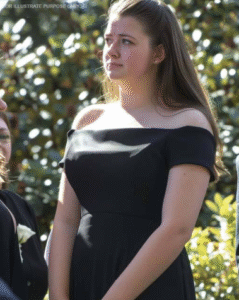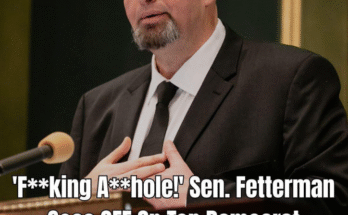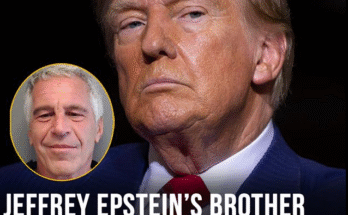My Dad Left When I Was Three—at His Funeral, I Was Shocked to Find Out What He Left Me in His Will
I was only three years old when my father walked out of our lives. At that age, I didn’t understand the gravity of his absence. My memories of him were fragmented—like puzzle pieces missing their connecting edges. A pair of strong hands lifting me onto his shoulders, the faint smell of tobacco on his jacket, a deep laugh echoing in the kitchen. Then, silence. After that, it was just my mother and me.
Growing up, I felt his absence like a shadow that trailed me. I watched my friends’ dads teach them how to ride bikes, attend school plays, or cheer from the sidelines of soccer matches. My mom did her best—she was both mother and father to me. She worked long hours, held me when I cried, and never spoke ill of him. Whenever I asked where he was, she would simply say, “Your dad made choices, honey. But that doesn’t mean he didn’t love you.”
As the years passed, I hardened myself against the idea of ever knowing him. I convinced myself he didn’t care. If he had, he wouldn’t have left. I grew into adulthood carrying this quiet resentment, this hole in my chest where a father’s presence should have been.
Then, when I was twenty-six, a letter arrived. It wasn’t from him, but about him. My father had died suddenly of a heart attack. He had been living two states away, alone, and apparently had no other immediate family. The letter wasn’t only about his death—it was an invitation to his funeral. My initial instinct was to throw it away. Why should I mourn a man who hadn’t been there to see me grow up, who had never called on my birthday, who missed every milestone?
But something in me—a mixture of curiosity and longing—pulled me toward going. Maybe it was closure I needed. Maybe it was a final confrontation with the ghost that had haunted my life.
The funeral was small, held in a modest church with cracked stained-glass windows. I recognized no one, except an older man who introduced himself as my father’s lawyer, Mr. Harris. The pews were sparsely filled with neighbors, a few co-workers, and people I couldn’t place. I sat quietly, feeling like an imposter at the funeral of a stranger who happened to share my blood.
As the service ended, Mr. Harris approached me. “Your father left instructions,” he said, his voice steady. “He wanted you to be present for the reading of his will.”
I felt a rush of confusion. Why would he leave anything to me? He hadn’t cared for twenty-three years. Part of me wanted to refuse, but something urged me to follow.
At the lawyer’s office later that week, I sat across from him, clutching a cup of coffee that had gone cold in my hands. He opened a folder, cleared his throat, and began to read. My father had left me everything.
Not millions of dollars—he hadn’t been wealthy. What he left me was more complicated, more emotional. There was a house, modest and a little run-down, but fully paid off. There were notebooks filled with his handwriting—journals spanning two decades. There was a box of photographs, some of which showed me as a baby, pictures I had never seen before. And then there was the letter.
The letter was short, written in a shaky hand.
“My dearest child,
If you are reading this, it means I’m gone. I know I left you and your mother, and that is my greatest regret. I was a coward, afraid of responsibility, and I thought you’d be better off without me. I realize now I was wrong. I watched you from a distance when I could, through photos your mother sent at first, then through the silence that followed. I kept every scrap of you I could find. I never stopped loving you, though I never earned the right to say it.
Please forgive me if you can. Everything I have is yours. It isn’t much, but it’s all that’s left of me. Love, Dad.”
I sat frozen, the words blurring as tears welled in my eyes. He hadn’t been completely absent—not in his heart. He had been a coward, yes, but he had cared. All those years, I thought I wasn’t wanted, that I wasn’t enough to keep him around. Yet here was proof that he had thought of me, written about me, regretted his choices.
The journals were filled with entries about his struggles—his battles with addiction, his guilt, his attempts to rebuild a life. Sprinkled throughout were notes about me: “Today would be her first day of kindergarten. I wonder if she wore the red dress her mother bought her.” Or, “I saw a photo of her at age ten—she looks just like her mother, only fiercer.”
Each word was like a thread stitching back together the torn fabric of my childhood. It didn’t excuse his absence, but it gave me a window into the man he was—flawed, broken, and human.
The house became mine, but more than that, so did the truth. For years I had built an image of him as someone who didn’t care, who abandoned me without a thought. Now I knew it wasn’t so simple. People are rarely only villains or heroes; often, they are something in between.
It took me months to work through the mixture of grief and relief. I spent long nights sitting in that old house, reading his words, feeling as though we were finally having the conversations we had missed for over two decades. I laughed at his clumsy jokes written in the margins, cried at his confessions, and whispered answers to the questions he had posed to an empty page.
In the end, what he left me wasn’t just a house or some belongings. He left me the gift of understanding. He left me the chance to heal, to rewrite the narrative I had carried all my life.
Standing at his grave months later, I finally spoke the words I had been holding back: “I forgive you, Dad. And I hope you’ve found peace.”
The wind rustled the trees overhead, and for the first time in my life, I felt as though he was with me. Not as the man who left, but as the man who, in his own broken way, loved me all along.


